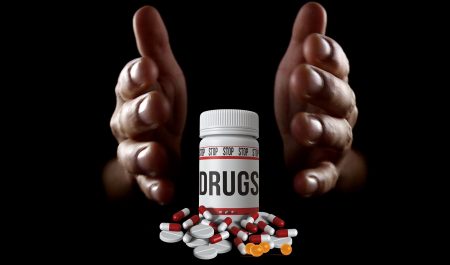by Contributor
(Jun. 22, 2022) — In this article, we explore the drug policies in the UK and US, and weigh up arguments on how ethical and fair they are, and whether there is room for them to be revised…
Across the world, governments battle to control the distribution and trafficking of illegal drugs through tighter border policies and stricter laws. In the UK, it’s estimated that illegal drugs cost the taxpayer an incredible £20 billion every year. In the USA, over a trillion dollars has been spent on the war against drugs.
As well as the financial cost, the importation of class A drugs devastates families and can ruin lives. However, when it comes to legislation, just how ethical are drugs policies in the UK and the USA? Keep reading to find out more…
Drug Policies in the UK
Class A drugs are considered to be the most dangerous in the UK and, as such, are policed strictly. Class A drugs include:
- Heroin
- Cocaine
- Methamphetamine
- Amphetamines and barbiturates which are controlled by prescription
Drugs like heroin are often imported into Great Britain by organised crime groups from Pakistan and Turkey, using supply chain involvement of Albanian groups.
Legislation regarding Class A drugs in the UK falls into four separate sections:
- Possession: an individual is found to have Class A drugs on their person or otherwise in their possession, for example in their home or in their car.
- Supplying: the distribution of Class A drugs to others; including offering to supply Class A drugs to others
- Manufacture: an individual or group of people producing drugs in order to sell them
- Import / Export: a person or group of people actively bringing drugs into the country or transporting them to another country
In the UK, possession of a Class A drug, depending on the quantity, can result in a prison sentence of up to seven years and/or a hefty fine. The supply, manufacture or importing of a Class A drug carries a maximum sentence of life imprisonment.
Drug Policies in the USA

Famously, many states in the US have now decriminalised the possession and use of cannabis; however, the country continues to take a tough stance on Class A drugs which, like the UK, will include:
- Heroin
- Cocaine
- Methamphetamine
- Ketamine
- Opioids
In recent years, opioids in particular have been a problem which is reaching epidemic status in the USA with deaths related to opioid abuse exceeding 100,000 every year.
Illegal drugs are often imported by land or sea into the USA from Mexico and Colombia, among other South American countries.
Possession of a Class A drug in the USA can result in a fine or a prison sentence of between 5 and 40 years, depending on which state the crime is committed in and, the amount of drugs in the person’s possession.
The supply of up to 5kg of a Class A drug for a first offender can result in a fine of up to $2 million and/or a prison sentence of a minimum of five years. For a second offence, drug dealers can expect to spend at least 10 years behind bars and/or a fine of up to $4 million.
For amounts of Class A drugs over 5kg, as a first offence, the minimum prison sentence is 10 years – increasing to 20 years or life imprisonment if the offence has led to the death or serious injury of another person. Second offences carry a sentence of no less than 20 years in prison.
During his term as President of the USA, Donald Trump was reportedly considering a change to the law whereby repeat offenders trafficking drugs into the country could face the death sentence; however, this never became US law.
How Ethical are These Drug Policies?
The main objective of drug laws in the UK and the USA is to protect the lives of citizens as well as preventing the high cost of illegal drugs to governments and taxpayers. While most UK and USA residents support these policies, there are plenty of people who don’t.
The Main Arguments
Many people who oppose drug laws argue that stimulants such as alcohol, nicotine and caffeine are addictive and yet, unlike ‘illegal’ drugs, can be bought and consumed with no more restriction than, in the case of alcohol, an age limit. Some feel that this is unfair and is purely down to the fact that governments rely heavily on taxes from these legal products.
There are also those who argue that not all users of illegal drugs are ‘addicts’, just like not everybody who enjoys the odd tipple is an alcoholic. They say that many people simply enjoy taking these drugs for recreational purposes and should be free to decide for themselves regarding their consumption.
Because of these points, those who are pro-decriminalisation will argue that individuals who enjoy the use of these substances should not face prison sentences or large fines for doing so. Governments, however, respond by pointing out the cost to the country’s health and emergency services and the crime figures which are often attached to the use of illegal drugs.
Do you Think US and UK Drug Laws Should Become More Relaxed?
While some arguments that drug policies are unethical are compelling, there’s simply no denying the harm that the use and distribution of Class A drugs can cause. Although there is a good case for governments to regularly revise drug policies and to introduce more sliding scales in terms of penalties, it’s extremely unlikely that restrictions will be lifted to any significant degree in the near future.
Do you think US and UK drug policies are there for good reason? Or do you think they should be revised or even decriminalised? Either way we’d love to hear your thoughts, so let us know in the comment box below!…



